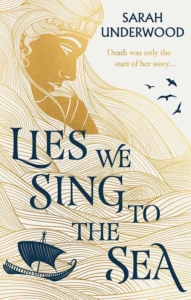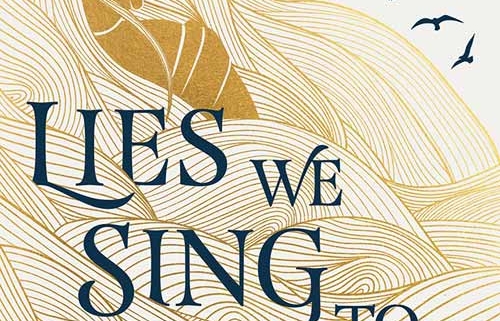Lies we Sing to the Sea by Sarah Underwood
Author Sarah Underwood questions society’s love and return to the classics year after year in a fascinating glimpse into re-tellings and classic stories.


Between the ages of fourteen and eighteen, I spent every Saturday morning volunteering at my local library. It was genuinely one of the best ‘jobs’ I’ve ever had. I was entrusted with making posters, disassembling the Lego models from the previous week’s Lego club, and occasionally being permitted to reshelve the returned books.
After a few years of that, you start to see some patterns in the return carts. There’s your Danielle Steels and your endless James Pattersons, your Rick Riordan and your Daisy Meadows. And then there were classics. Lots and lots of classics, many published hundreds of years ago. Time and time again, the works of Shakespeare, Dickens, Dostoyevsky, Austen, Conan-Doyle and Homer were loaned, read, returned, and reshelved by me.
In recent years, retellings and reimagnings have dominated the shelves and the charts. Jennifer Saint’s Ariadne, Vaishnavi Patel’s Kaikeyi, Madeline Miller’s Circe and The Song of Achilles, Chloe Gong’s These Violent Delights, and Tracy Deonn’sLegendborn, to name just a few, have all been hugely successful. My own debut, Lies We Sing to the Sea, inspired by a small part of the Odyssey, became an instant bestseller.
So why do we keep returning to the classics?
There was a trend that took over TikTok a few weeks ago. Soundtracked by Ryn Weaver’s Pierre, TikTokkers filmed videos showing the things they did every day before posing as someone hundreds or thousands of years ago doing the same thing. It was an unabashedly wholesome, nostalgic trend, one that encouraged a moment of reflection on how we are connected, still, to the generations that have come before us. We have alwaysbraided our hair; we have always dipped bread in olive oil; we have always painted our nails and our faces. The message is clear: people have always been people.
I think then that the answer to the question why do we keep returning to the classics? is the same.
Sing, goddess, of the anger of Achilles, opens Homer’s Illiad. Not sing, goddess, of the particulars of boats or sing, goddess, of the geography of Achaea. As fascinating as it is, we probably aren’t reading the Illiad for the four-hundred verse catalogue of the Achaean fleet. The Illiad is not a history book, it is a story about people. We are there for Achilles’ rage, Agamemnon’s arrogance, Odysseus’ cunning, Hector’s gentleness (He was just a man! Who loved his son! And horses!). We are there to be reminded that humanity has, at its core, remained unchanged since the days of heroes.
I think we return to these classics to be reminded that we are the same as we were four thousand years ago as we are now, as we will be in two thousand years (assuming any of us are left): we will keep braiding our hair, we will keep dipping bread in olive oil, and we will keep telling each other stories.
Lies we sing to the Sea is published by HarperCollins and is available now.
Views expressed do not necessarily reflect those of the Federation.



